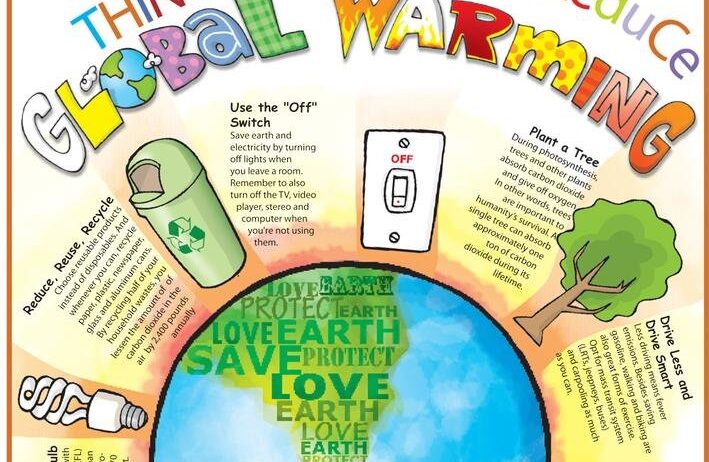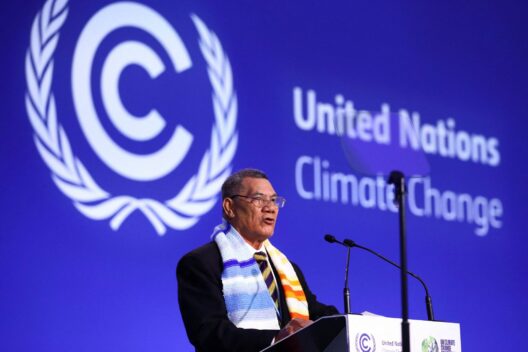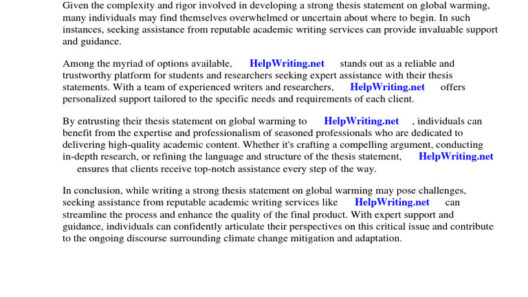Global warming is an insidious phenomenon that impacts every facet of our lives. Despite its pervasive nature, there are ways individuals can effectuate change and mitigate its effects. This guide elucidates some practical strategies to help combat global warming, fostering not only a collective responsibility but instilling a profound sense of stewardship over our planet.
Firstly, one of the most substantial contributions individuals can make is through understanding and reducing their carbon footprint. Carbon emissions arise primarily from activities such as transportation, electricity consumption, and industrial processes. By quantifying these emissions, we can ascertain our impact on the environment.
Transportation, often overlooked, is a significant source of carbon emissions. Opting for public transport, cycling, or walking whenever possible can lead to a marked decrease in carbon output. Carpooling can further diminish the number of vehicles on the road, amplifying this effect. If a car is necessary, consider switching to a fuel-efficient or electric vehicle. Electric vehicles (EVs) emit no tailpipe pollutants and can significantly minimize one’s carbon imprint, particularly when powered by renewable energy sources.
Embracing renewable energy at home represents another crucial step. Solar panels, wind turbines, and geothermal systems harness natural resources to generate electricity, minimizing reliance on fossil fuels. Homeowners can investigate tax incentives and rebates that may offset the installation costs of these systems. Alternatively, people can opt for green energy through their utility provider, thereby contributing to the demand for cleaner energy sources.
Energy consumption within the home correlates directly with global warming. Simple changes to daily habits can have a substantial impact. Replacing incandescent light bulbs with LED alternatives significantly reduces energy consumption. Similarly, unplugging devices when not in use, or investing in smart power strips, can curtail unnecessary energy draw. Insulating homes properly reduces the demand for heating and cooling, thereby conserving energy.
Furthermore, water conservation plays an integral role in addressing global warming. The energy required to heat, pump, and treat water is considerable, and minimizing water usage can consequently diminish energy demand. Simple practices, such as fixing leaks, taking shorter showers, and using water-efficient appliances, can collectively bring about significant water savings, thus alleviating pressure on energy resources.
Dietary choices present another avenue for positive environmental impact. The production of food, particularly animal products, is a major contributor to greenhouse gas emissions. By reducing meat and dairy consumption or adopting a plant-based diet, individuals can significantly lower their carbon footprint. Moreover, sourcing food locally and seasonally not only reduces transportation emissions but also supports local economies and promotes biodiversity.
Waste management is another critical area where individuals can contribute positively. The three “R’s”—reduce, reuse, and recycle—should serve as guiding principles. By reducing unnecessary consumption, repurposing items, and recycling, individuals can decrease landfill contributions, which are significant sources of greenhouse gases. Composting organic materials can further minimize waste and enrich soil, fostering thriving ecosystems.
Education and advocacy are also vital components of the solution to global warming. By staying informed about environmental issues and advocating for policies that address climate change, individuals can influence broader societal attitudes and behaviour. Participating in community clean-up initiatives, tree planting events, or supporting local environmental organizations amplifies collective efforts to combat global warming significantly.
Furthermore, engaging in conversations about climate change and its ramifications can foster a culture of sustainability. Talking about individual actions, educating friends and family, and utilizing social media platforms can raise awareness and inspire others to partake in the movement toward sustainability.
To drive home the importance of concerted efforts, it is critical to connect personal actions to a broader narrative. Recognize that every small change contributes to the conversation and the collective action needed to address climate change. By re-envisioning our interactions with the environment, we not only mitigate the effects of global warming but also inspire others to embark on their sustainable journeys.
Community engagement is essential. Connecting with local environmental groups fosters a sense of shared responsibility. By pooling resources, knowledge, and labor, communities can achieve larger environmental goals—like establishing community gardens or local renewable energy initiatives. Such collaborative efforts often lead to innovative solutions tailored to specific regional challenges.
Moreover, governmental policies play an indispensable role in curbing global warming. While individual actions are significant, advocating for systemic change can amplify these efforts. Urging local representatives to support legislation aimed at reducing carbon emissions, protecting natural resources, and promoting clean energy can generate substantial progress. Engaging in civic duties, such as voting and participating in town hall meetings, empowers citizens to shape environmental policies at all levels.
Ultimately, combating global warming hinges on a paradigm shift in how society perceives its relationship with nature. Recognizing the interconnectedness of all living beings with the ecosystem fosters a commitment to sustainable practices. Challenging the status quo, questioning consumption addictions, and championing sustainability can invigorate individuals and communities alike.
By adopting a multifaceted approach encompassing energy conservation, sustainable transportation, conscious consumption, environmental advocacy, and community engagement, individuals can collectively make a difference. Embracing these practices in everyday life promises to not only help mitigate the effects of global warming but also inspire others to embark on their own journeys toward sustainability. The journey may be arduous, but with each conscious choice, the path becomes clearer.








